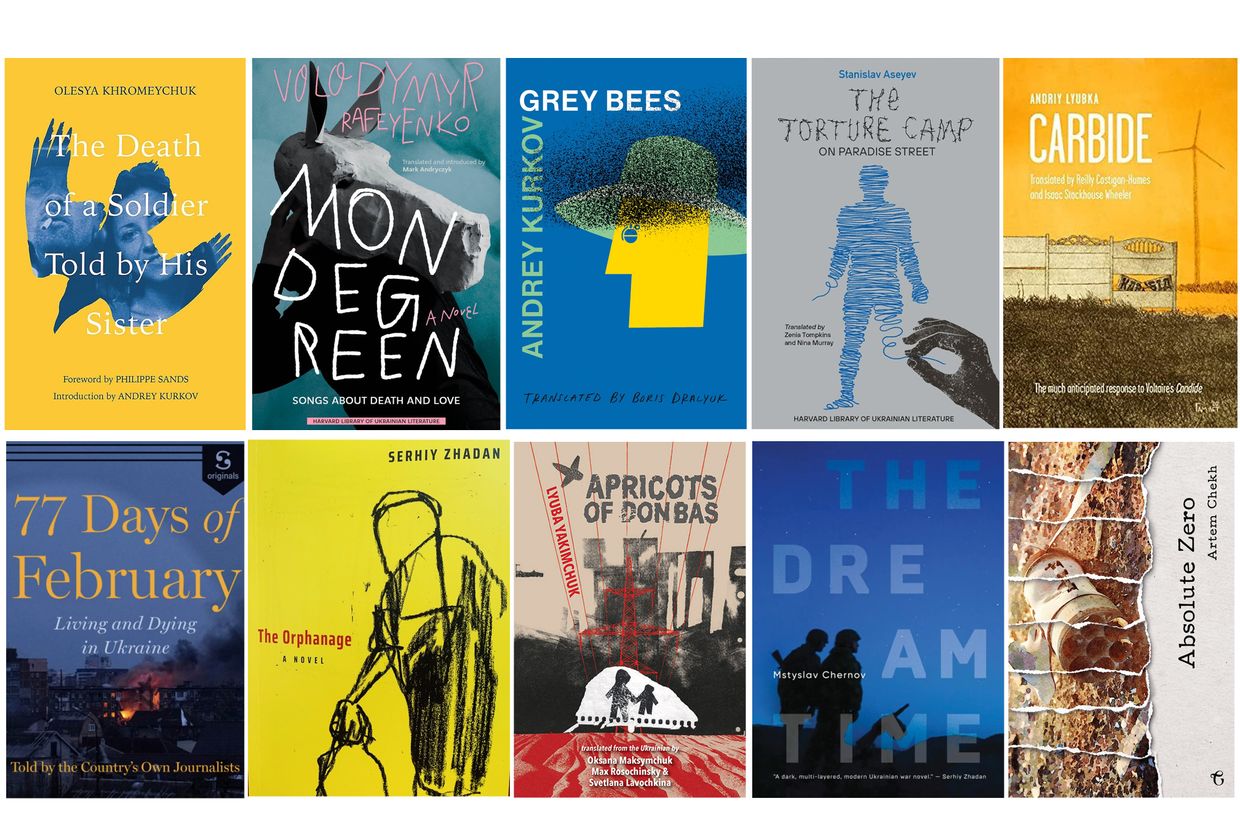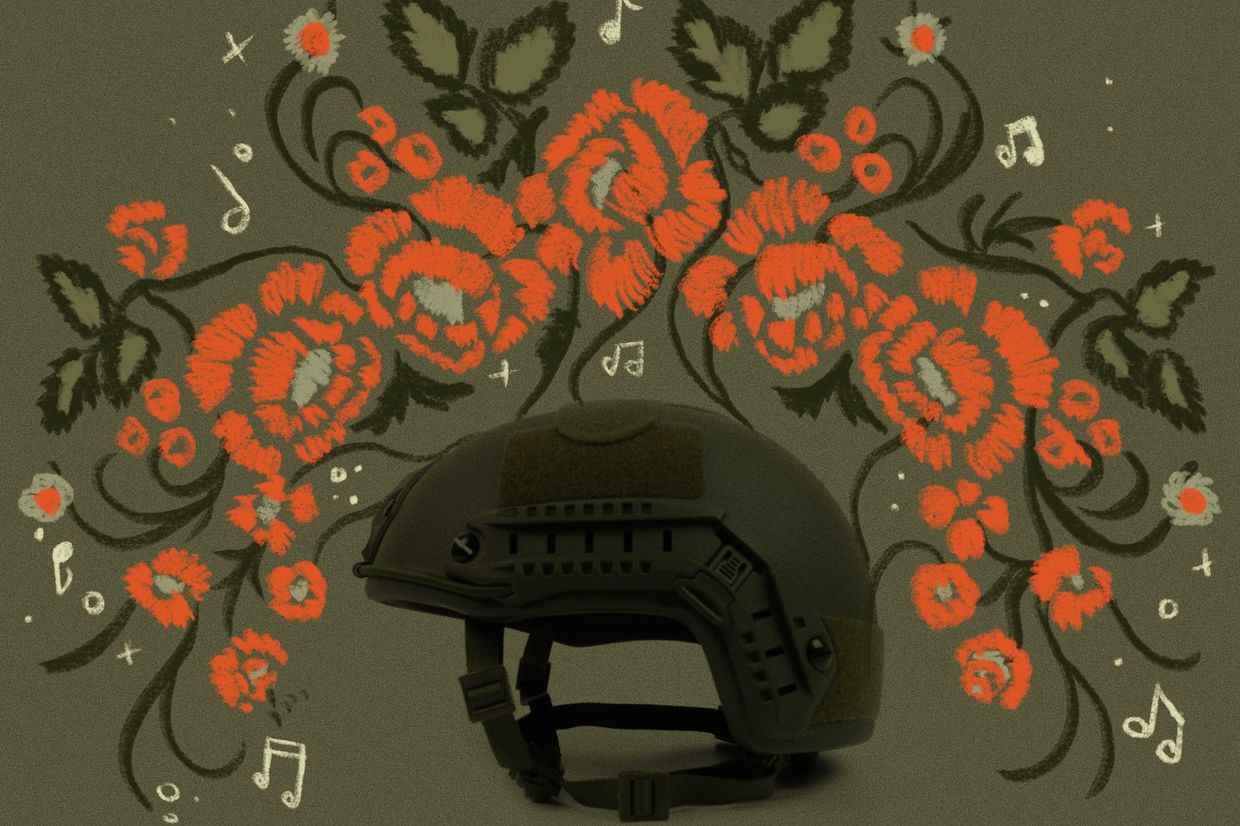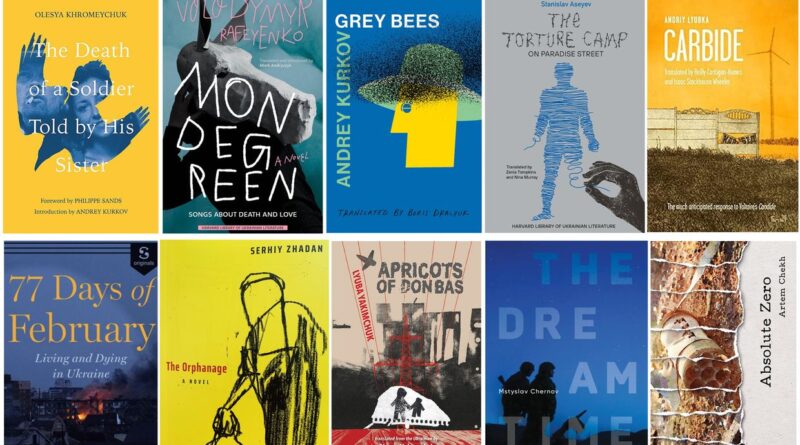Comments: Heavy weight of Ukrainian culture
“Everything in Ukraine is about pain, tears, slavery and wars. It’s true that children don’t want to read such literature.” I still remember this conversation back at school when the math teacher was trying to explain to the literature teacher why her class was not preparing their lessons.
“But that’s how it really was throughout the history of Ukraine,” the surprised literature teacher replied.
“If that was the case, it’s no wonder they don’t want to read. I couldn’t stand such indifference either. In foreign literature, there are events: Mowgli, Gulliver, Tom Sawyer. Personally, I don’t know Ukrainian literature very well. We studied Russian literature at school, which included ‘Garnet’s Tale,’ ‘Mister and Margarita,’ and even ‘War and Peace,’ which are about war as well, but interesting. For some reason, Russian literature is not as painful as ours. Was it not so for them?”
The literature teacher replied: “It wasn’t.
“No, that still needs to be confirmed,” the math teacher dismissed.
I came across this discussion while I was staying after class to work on algebra, as I was struggling with it while preparing for university. I knew the math teacher was wrong, and yet, it hurt to hear all this. I had heard similar complaints and accusations about the sadness and heaviness of Ukrainian literature and all Ukrainian culture throughout my life.
With a full invasion, there was no need to prove anything to Ukrainian Russophiles about our history or culture. Maybe now there is more information about how things were, or the number of Russophiles is decreasing. It’s just unfortunate that many people who admire the “great” Russian culture had to see missiles destroy their homes in order to get rid of this impression.
As I prepared to enter the field of philosophy with a focus on Ukrainian literature, I began to learn more about this “heavy Ukrainian culture,” about things we had never said before. talk about them at school. After studying literature on World War I, the Ukrainian Holodomor – which left me terrified and sleepless – and World War II, I was convinced that the 1960s and 1970s were it would be a time to enlighten and restore, since that was when my parents were born.
I thought about how close that was to me over time. But, shortly before the examination of Ukrainian literature, I read a sentence that still hangs in my mind when I think about “heavy Ukrainian culture”: “Singer Alla Horska was killed with a hammer on the head because of the situation his pro-Ukraine .”
This is what the authorities of the Soviet Union did to achieve our independence to all who did not agree with their inhuman policies, slanders and crimes. At the same time, the poet Vasyl Symonenko was beaten to death, and the writer Vasyl Stus was imprisoned, where he died after years of torture and brutal conditions.
This happened to everyone who did not submit, bow the knee, remain silent, or side with the oppressors. Last year, my co-authors and I wrote a children’s book, “Light Catchers” about the most famous Ukrainian artists of all time, and we spent hours Many of us argue about how to present all the real information about artists in a way that will not hurt people. children, because 80% of artists suffered from Russian atrocities.
When I entered the university and began to study Ukrainian literature, I thought that with the independence of Ukraine, the gates of pain were closed, that this was a free Ukraine, and no one was he will be able to do such things to our artists or any Ukrainian again. This is the modern civilized world, after all. What persecution, heaven forbid, war can we talk about in the middle of Europe? After all, our oppressors were long dead – we were left to build a free culture in a free country.
And indeed, for a while, it was. In the 1990s, Ukrainian literature, music and cinema adapted to and went with European postmodernism. In 1985, writers Yurii Andrukhovych, Viktor Neborak and Oleksandr Irvanets founded the literary group “Bu-Ba-Bu” (Burlesque-Balagan-Buffoonery), which completely destroyed Soviet and post-Soviet literature and provide guidance to new writers.
Oksana Zabuzhko, with her book “Fieldwork in Ukrainian Sex,” created a unique list of Ukrainian literature. The poet Serhiy Zhadan, who came from a simple background in eastern Ukraine where the influence of Russian culture was present, began to promote the Ukrainian and high culture through his writings, thus influencing thousands. Ukrainian music festivals were established, Ukrainian music continues to appear on radio and television. This was also happening in theater and cinema.
Voluntary Ukrainization began in our culture, with more and more artists turning to the Ukrainian language, which was becoming more popular and fashionable among artistic and intellectual circles. This was a difficult time for nation-building, as Ukraine moved slowly but purposefully towards Ukrainianism. Indeed, Ukraine’s independence, declared on August 24, 1991, until Russia’s illegal annexation of Crimea in 2014, was a unique time when Ukraine wrote its glorious pages. These were the twenties when literature was not “heavy” but unexpected, completely new, vivid and energetic.
With the annexation of Crimea and the undeclared war by Russia against Ukraine, which lasted eight years in the eastern part of the country, Ukrainian writers, like a mirror of reality, began to write again about the war, loss, pain, suffering and death. However, until 2022, these were still not main topics in Ukrainian literature or culture in general.
But with the full invasion, without a doubt, the themes of war, exile, infiltration, loss of homes, deportation, migration, violence, rape, abuse and disappearance from the front have become the core of Ukrainian culture. After some time, we can hear again that the art of the 21st century in Ukraine is no different from the ideas of the middle of the 20th century and that everyone is tired of reading these articles bad and painful Ukrainian.
But how can it be so when images always reflect reality and cannot always be indifferent to historical trends? How can it be when, today, on the 33rd anniversary of Ukraine’s independence, the Russians destroyed the local history museum of Zaporizhzhia Oblast?
10 books to better understand during the war in Ukraine
Ukrainian writers could have devoted their lives to improving their craft. Instead, many of them have joined the war effort and resisted Russian aggression. Like any other member of society, Ukrainian writers have lost their loved ones and colleagues to Russia.

Over the past year, I have thought many times about the house of the artist Polina Raiko, whose walls and ceiling she used to paint, were flooded after the Russians bombed Kakhovka. Hydroelectric Power Plant. They have been destroying our culture, art and literature for centuries to erase our identity and kill those who can publish, recreate and show the terrible truth created by our enemies.
With great pain, I have to admit that I now have a separate bookshelf of Ukrainian writers who were killed, many of whom were my good friends. These are not only soldiers killed in the war but also civilians. For example, let’s remember the writer Victoria Amelina, who was killed by a missile in a pizzeria in Kramatorsk, where she was with an international delegation of journalists.
Not only many people but hundreds of artists have been killed to ensure that their voices are not heard.
Today, on the most important holiday in our country, a new book called “On the Minefield of Memory” by the poet Maksym Kryvtsov, who was killed while working at the front, was published. We try to restore everything that our murdered artists said during their lives, but the biggest regret is that they will not be able to say or write anything more.
And as much as we would like our culture to be nice and light, our history is what it is. We have to talk about how Russia has been killing us for centuries and continues to do so. Yes, it will be painful and sad for us to read and re-read the chronicles, books, reports and fiction about the war, just as it will be painful to watch plays and movies and listen to the songs of this time, but it is our bloody history, and we have no other choice.
Despite being “heavy,” our culture is also strong, deep, unique, and solid, even though it is scarred by cruelty and injustice.
We don’t know when this fight will end or how much we’ve gotten used to it, but I know my small consolation will be that there are no new books after obituaries of murdered Russian writers appear on my shelf.
Comments: On Independence Day, a playlist in honor of the singers who defended Ukraine
Editor’s note: Daria Kolomiec is a Ukrainian cultural activist, producer, DJ, and author of the documentary project Diary of War. Since the summer of 2022, Daria has been volunteering in New York City, where she speaks and shows Ukrainian music and culture to Americans, raising money to support it.

#Comments #Heavy #weight #Ukrainian #culture
